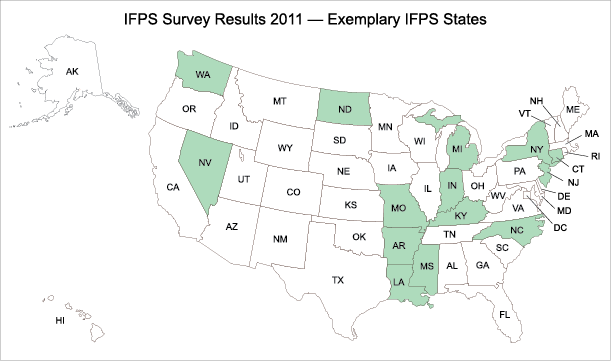The IFPS Coast-to-Coast Blog has been examining strategies for attracting and retaining IFPS therapists. This post looks at the IFPS therapist from the perspective of the most effective IFPS programs nationwide.
A 2011 survey, conducted by the National Family Preservation Network, found 14 states with exemplary IFPS programs. Exemplary programs have written program standards, monitor compliance, and conduct program evaluation. The majority (65%) of IFPS programs use a specific clinical model and provide follow-up services (66%). In these programs an average of 91% of families remain intact at case closure.
Many of the findings in these exemplary programs relate specifically to IFPS therapists:
- Most of the services are provided by one worker with team back-up
- Worker has ongoing supervision that includes case consultation
- Worker receives mandatory training
- Key components of intensity are adhered to:
- worker meets with the family within 24 hours
- 24/7 availability of the worker
- worker availability on evenings/weekends
- low caseload (2–4 families), brief length of service (4–6 weeks)
- high number of face-to-face hours spent with families (average of 47 hours per IFPS intervention)
State by state details – click here to view (PDF, 98 Kb)
The chart also raises additional questions . . . here are some that can be answered by you!
- What does a typical weekly schedule look like for an IFPS worker?
- How do you maintain availability while balancing work and home life?
_______________
Posted by Priscilla Martens, NFPN Executive Director

